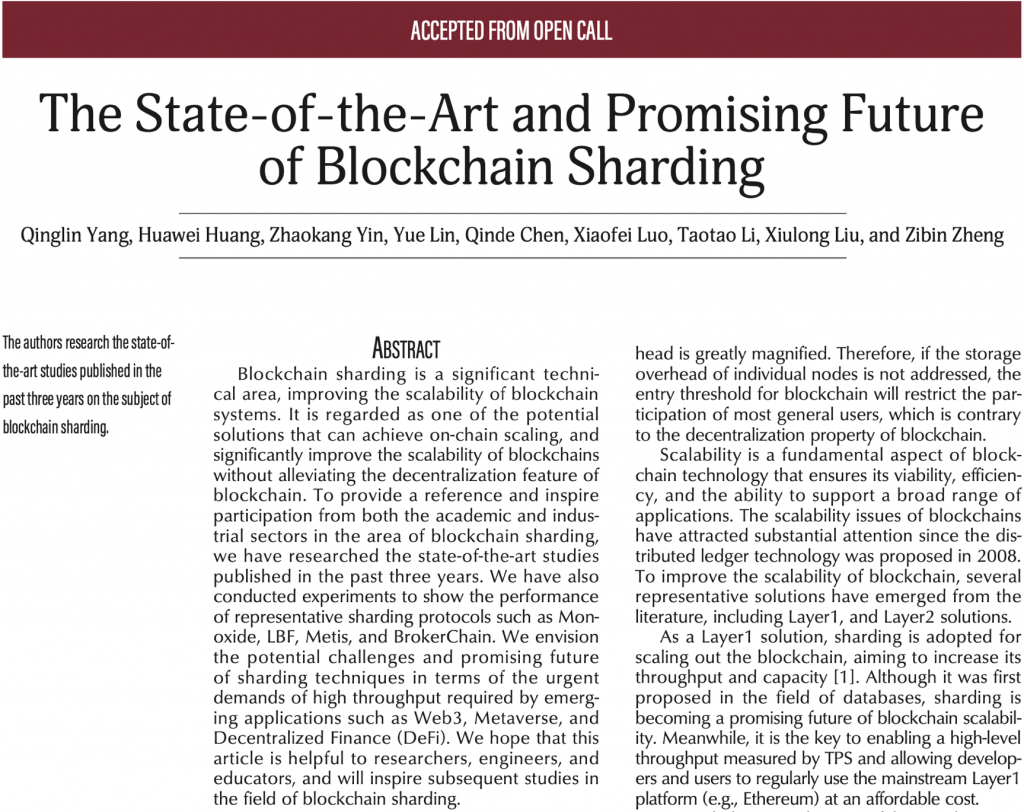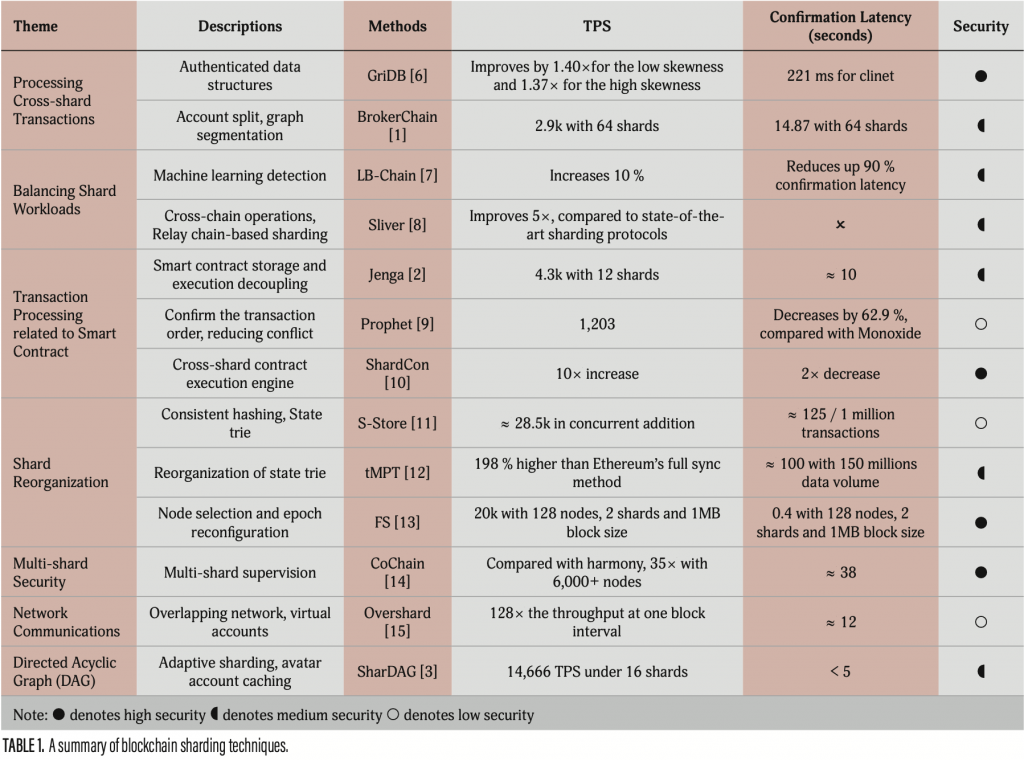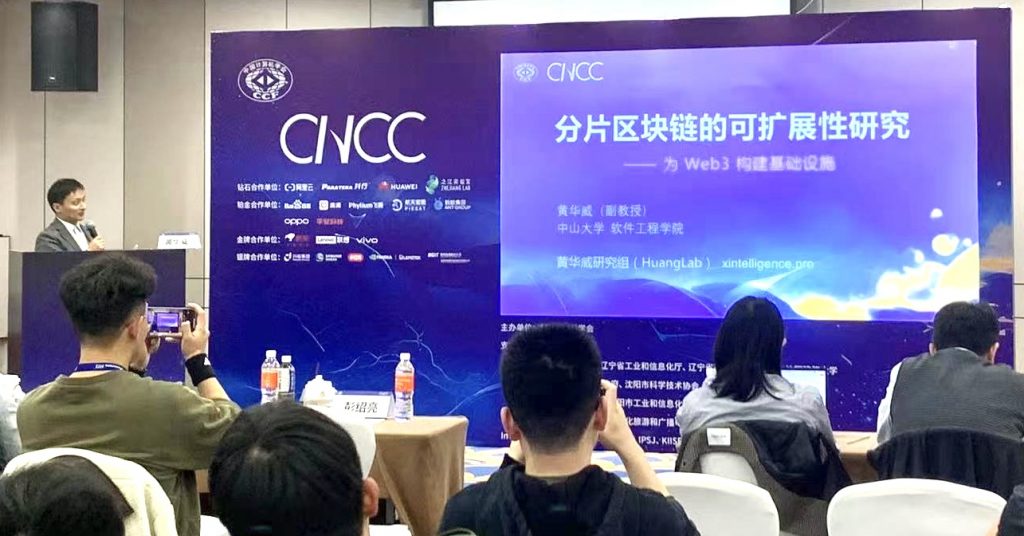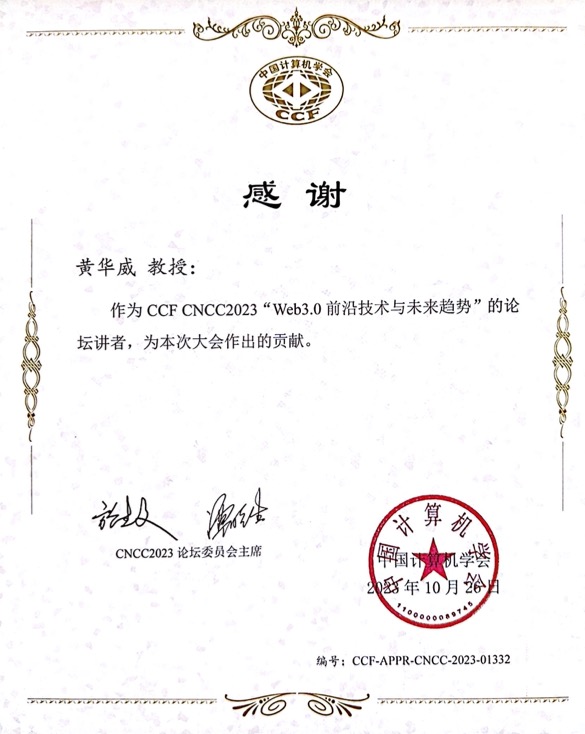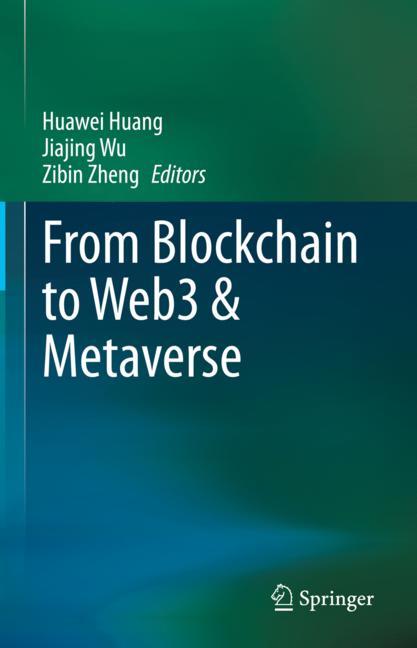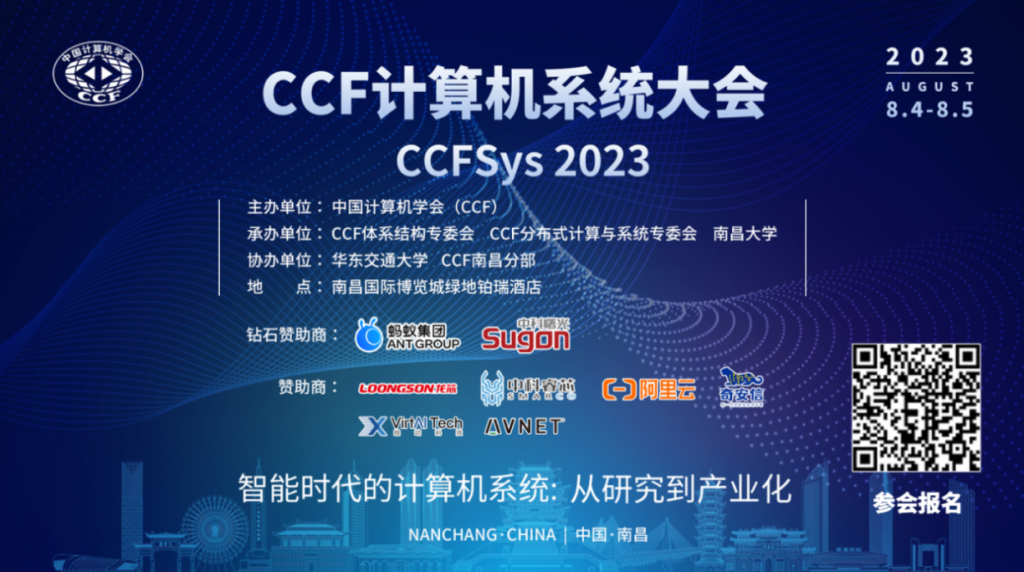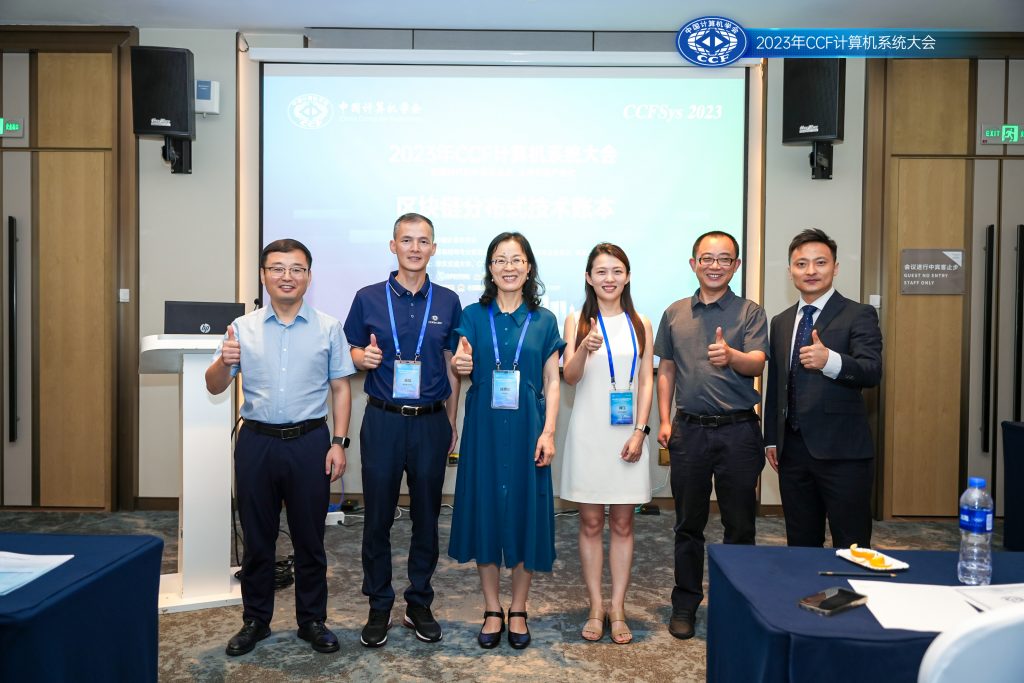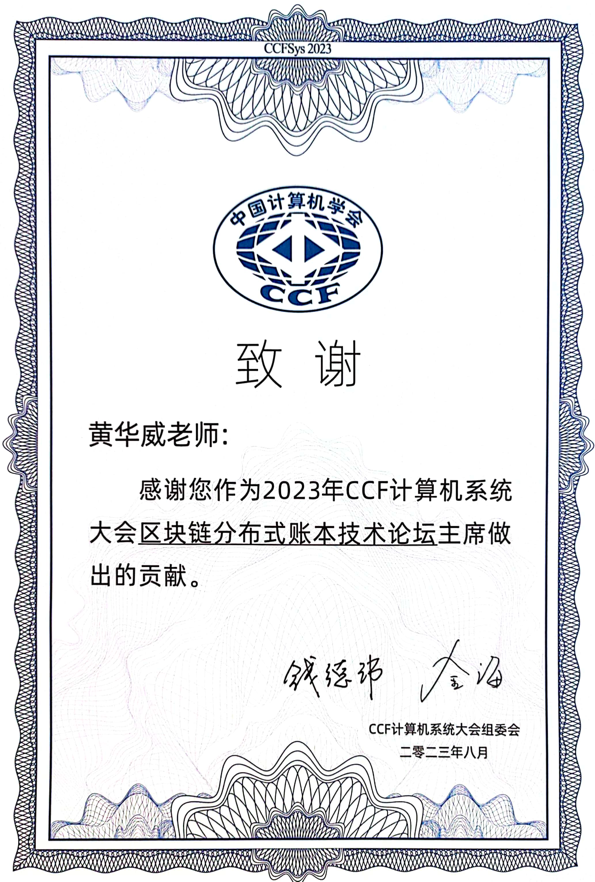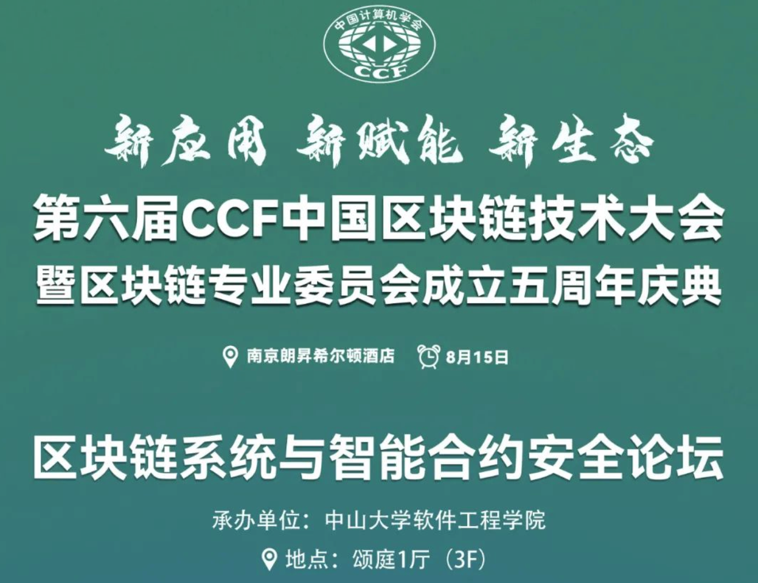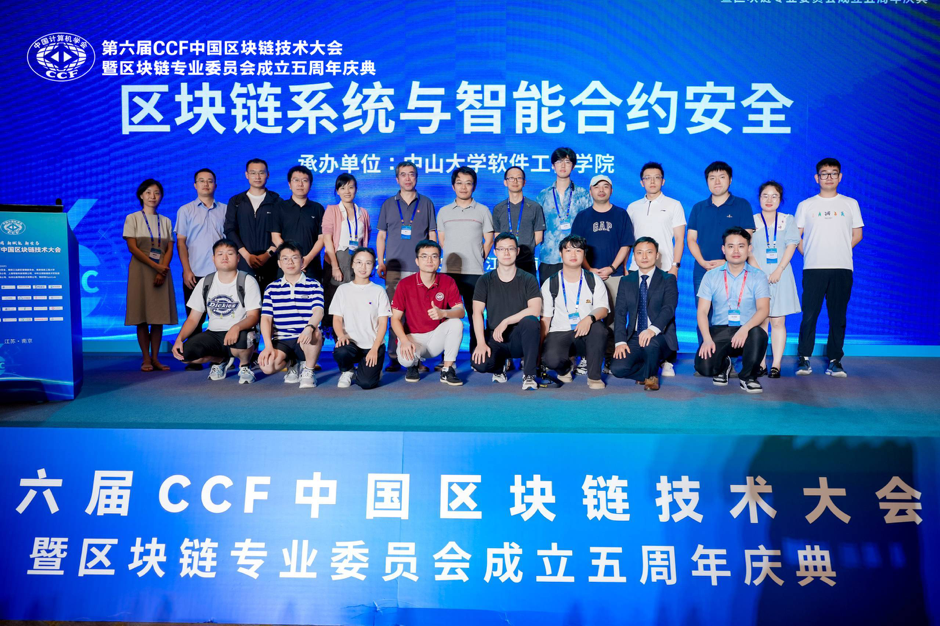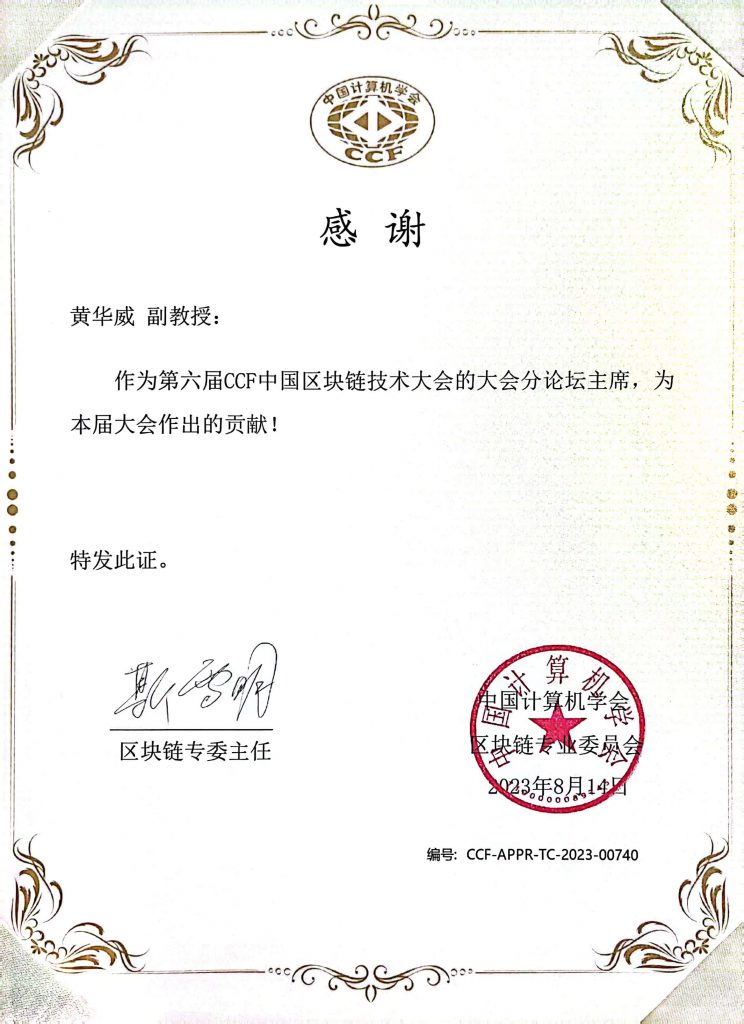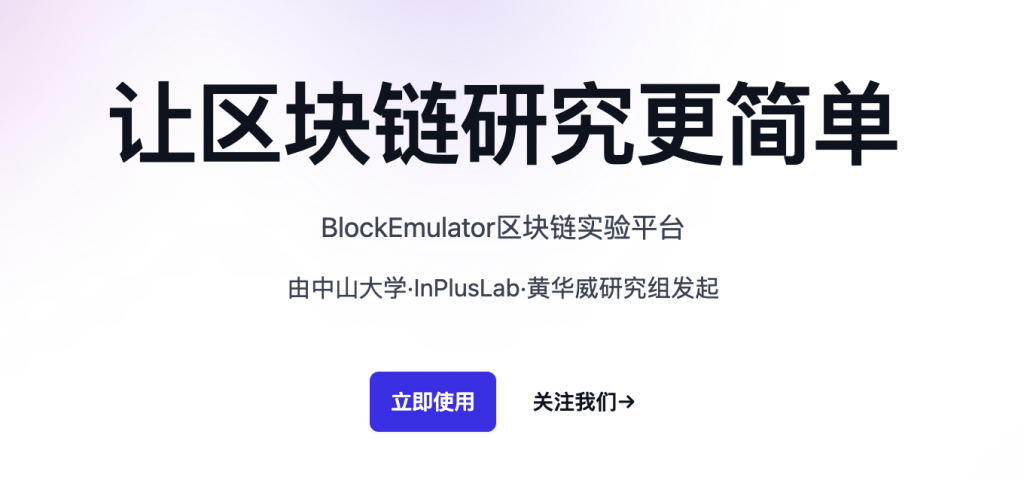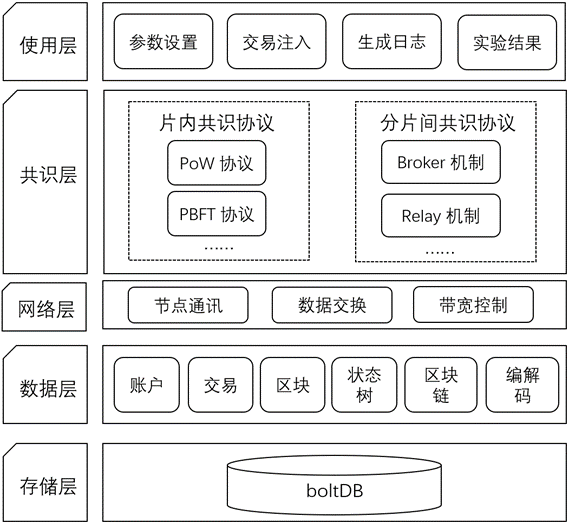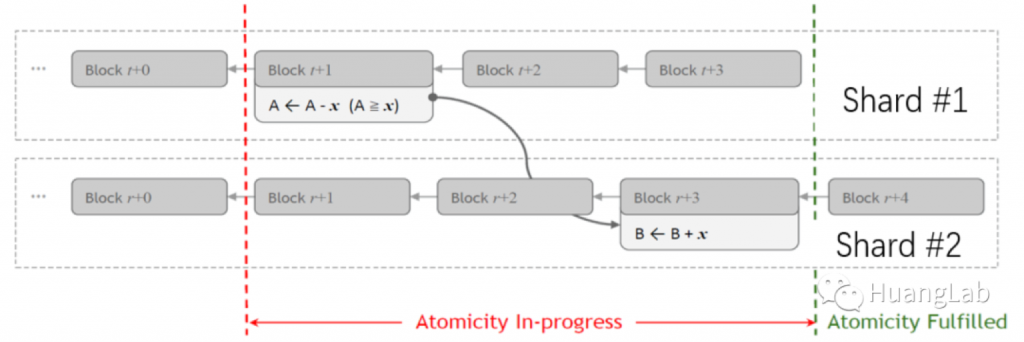黄华威研究组,2025年10月24日
黄华威研究组 (HuangLab) 发布了专为 BlockEmulator 社区打造的链上社区组织 —— EmulatorDAO。研究组已经将它嵌入了 BrokerChain Wallet 钱包软件的首页,如下图所示。
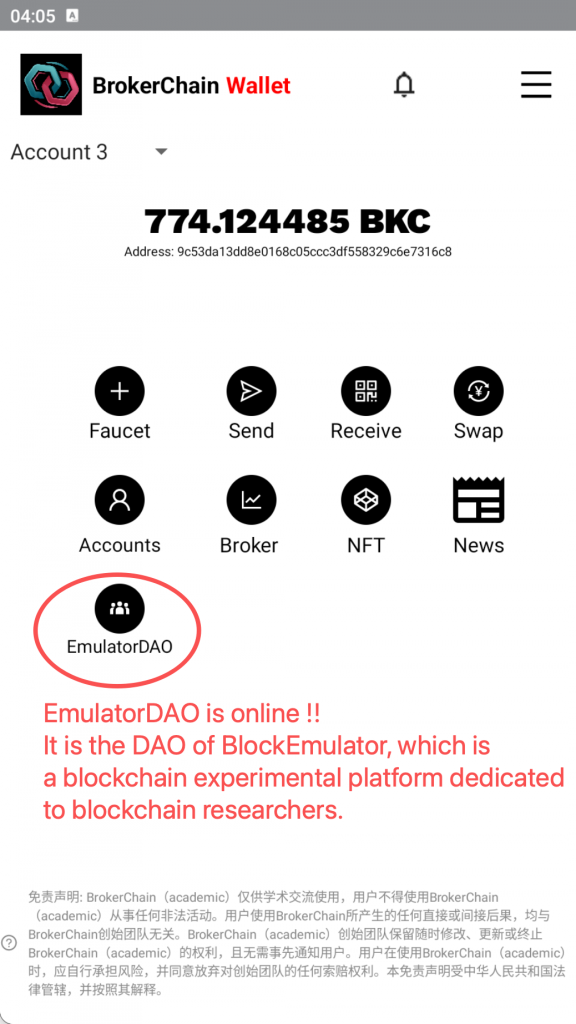
EmulatorDAO 功能简介
EmulatorDAO的主要用途是允许普通用户提交对BlockEmulator社区做出贡献的证明材料来获得社区的奖励与激励。EmulatorDAO的社区管理员对用户提交的证明材料进行审核评估后,可以通过钱包软件发放纪念徽章(或称作勋章)与BKC两种奖励。同时,用户可以上传一个独特的图片(例如他们自己的论文首页截图)在 BrokerChain 区块链上铸造专属NFT。此外,EmulatorDAO还提供了一个社区广场排行榜,用于展示社区所有用户获得的奖励徽章与他们专属的纪念NFT。
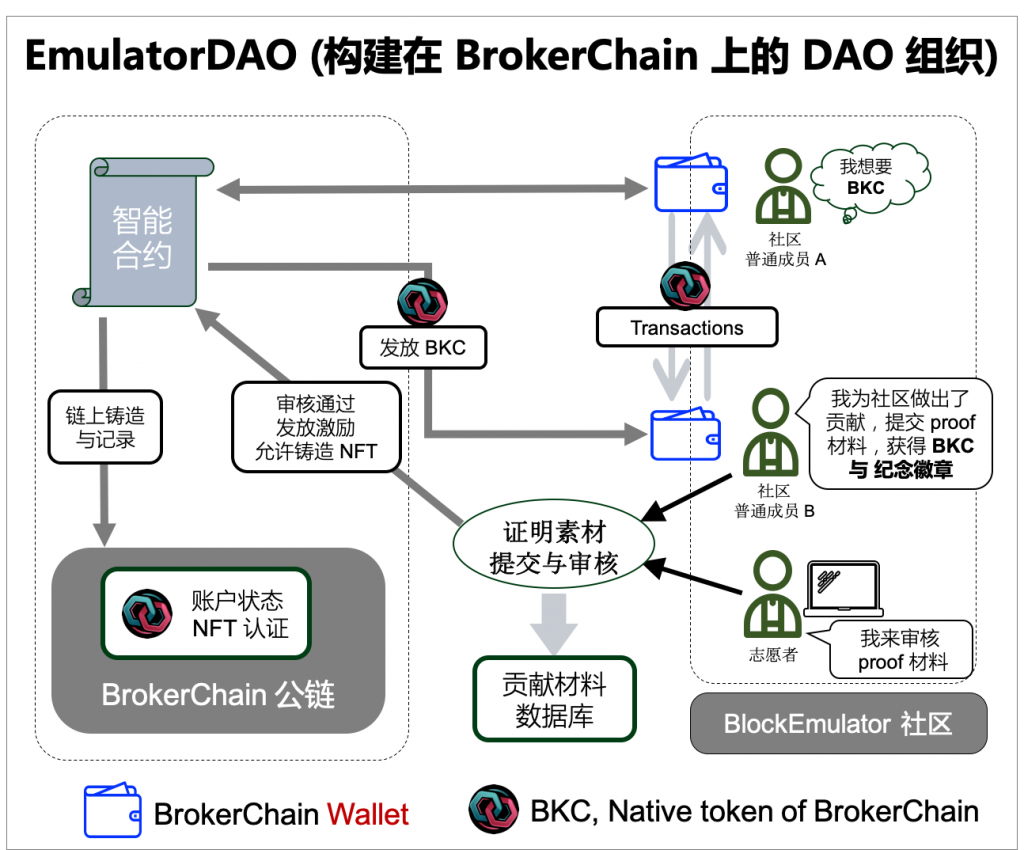
项目诞生背景
BlockEmulator 是黄华威研究组为国内外区块链研究者与开发者打造的创新实验平台,致力于提供轻量级的区块链实验和模拟环境,帮助研究者快速验证他们提出的新概念、新算法、新协议、新机制,并提供了便捷实用的对区块链常见的实验指标(如 TPS、交易确认时延、交易池拥挤程度、消息与区块的网络传播延迟等等)进行性能评估的框架。但是,BlockEmulator 用户社区缺乏激励机制,导致社区的凝聚力不够强。 因此,在 BlockEmulator 发展的关键时期,建设一个强大且具有自我驱动属性的用户社区非常必要。为了提升BlockEmulator社区治理水平和激发创新活力,EmulatorDAO项目旨在构建一个面向BlockEmulator社区的自治组织。EmulatorDAO 基于区块链构建链上治理机制,通过设计一套合理的激励机制促进 BlockEmualtor 社区的繁荣与持续发展。
核心功能
激励机制: 社区用户成员提交对 BlockEmulator 社区的贡献度证明材料。社区志愿者审核后,可以通过与链上智能合约交互的方式发放纪念勋章与BKC,用户也可以自行上传图片铸造专属NFT。社区贡献者包括开发者、内容创作者、实验测试人员、协助社区维护的志愿者等等。总之,EmulatorDAO鼓励社区用户使用BlockEmulator做实验、遇到问题积极提交反馈并帮助其他社区成员,旨在推动 BlockEmulator 实验平台与 EmulatorDAO社区的相互赋能。
社区治理: 任何使用过 BlockEmulator 的研究者与开发者可自发成为EmulatorDAO成员,之后就可以为BlockEmulator社区的发展贡献力量。未来,EmulatorDAO社区成员可以在该平台上发起提议,包括平台功能更新、资源分配、社区发展方向等等。这些提议由 EmulatorDAO 成员讨论投票来进行决策。
必要的名词解释
用户提交的“贡献度证明材料”:用于证明用户对BlockEmulator社区做出过贡献的相关证明文档,包括但不限于
- 使用了BlockEmulator 做实验的证明素材,
- 引用了BlockEmulator做实验的已发表论文全文,
- 在 BlockEmulator 微信交流群中的问答截图,
- 在 BlockEmulator 的GitHub 项目提出 issue 或者反馈 bug 的记录(页面另存为PDF文档),
- 在研究生组会上的分享记录,
- 在社交软件群组内的宣传记录,
- 通过邮件发送给同行的介绍,
- 在社交媒体上撰写的BlockEmulator的使用教程、图文博客、朋友圈介绍,
- 公开的播客音频、介绍视频,
等等其他任何对 BlockEmulator 的使用与推广做出正面促进的材料。
面向社区用户发放的“勋章”:纪念勋章用于计算用户在社区贡献排行榜中的排序,排序靠前的社区用户将获得相关研究成果的展示机会。
面向社区用户发放的“BKC”:BKC是 EmulatorDAO 底层基础设施 BrokerChain 区块链的 native token,持有它可以获得BrokerChain区块链的治理权益与未来成长价值。
用户操作步骤
用户通过手机端 BrokerChain Wallet 主页的EmulatorDAO 按钮进入页面。
具体操作步骤解析为如下几个步骤:
Step1: 用户在进入 EmulatorDAO 主页(如图3)后,可以点击左上角的“Proof Submission”按键进入材料提交界面(如图4)提交贡献度证明材料与编辑希望展示的相关信息。
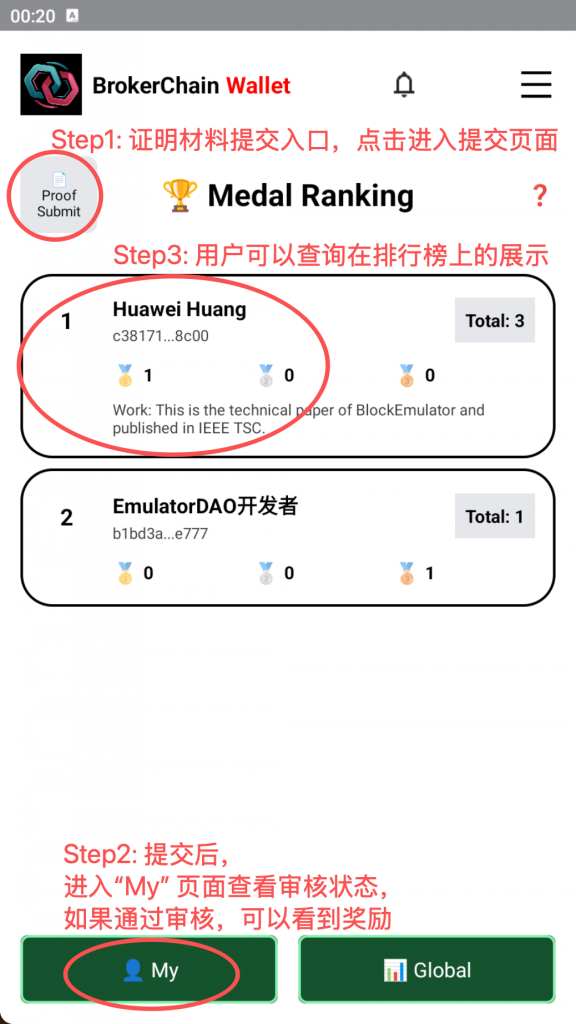
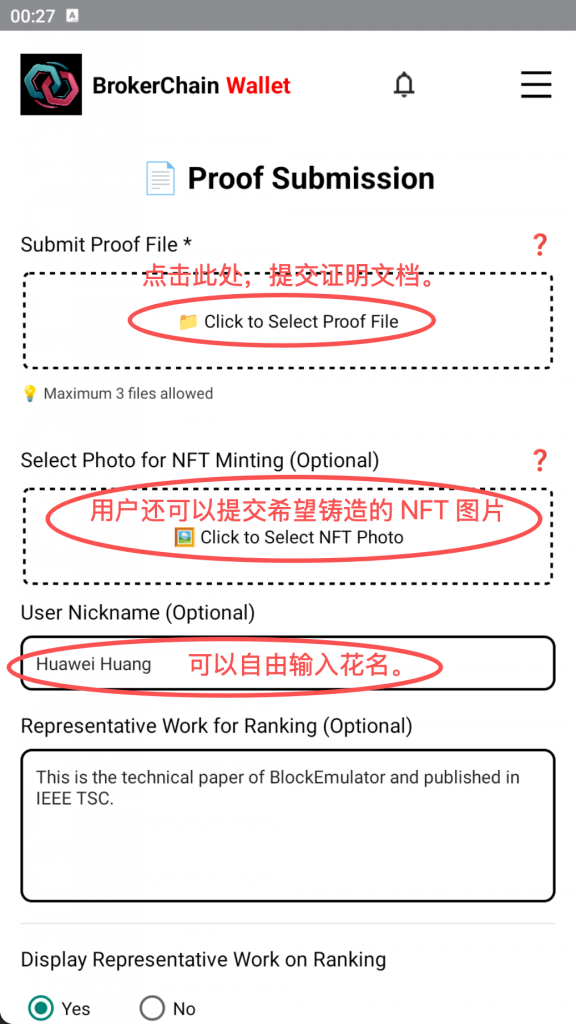
Step2: 用户在完成提交后,可以通过主页中左下角“My”按键进入“我的”界面(如图5)查看当前提交的审核状态。
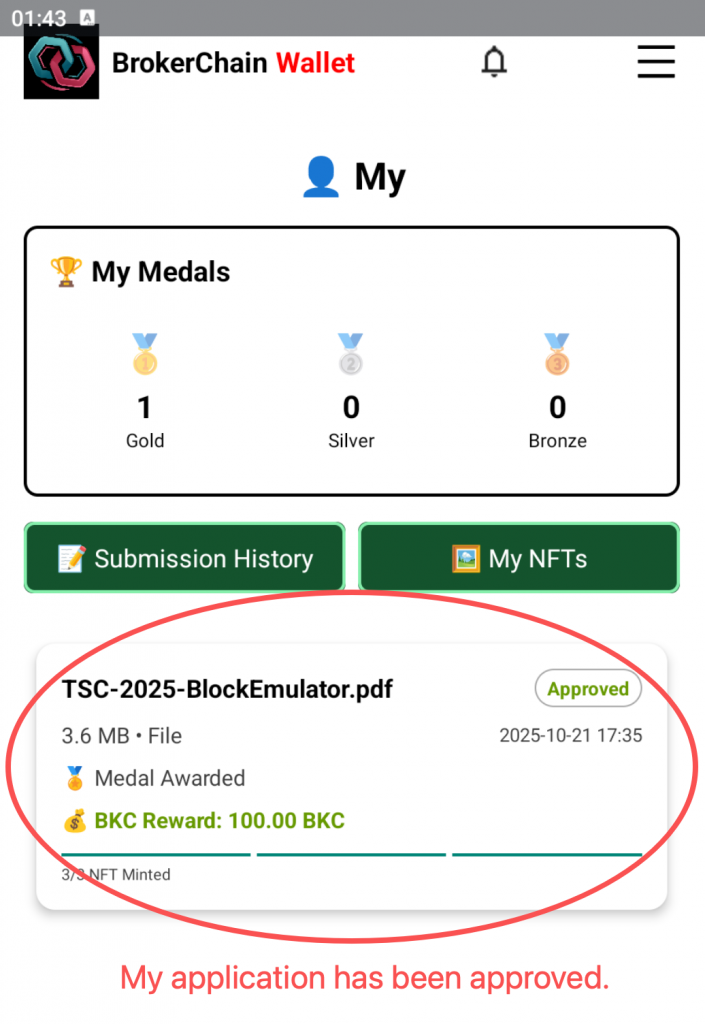
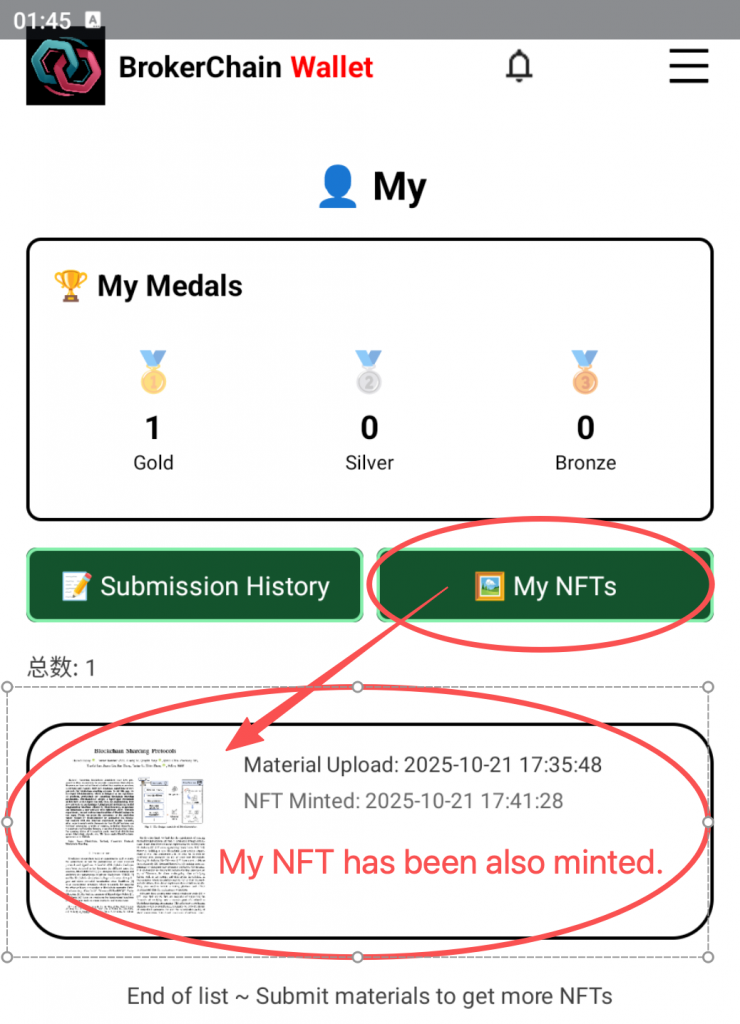
Step3: 在审核完成后,首页的排行榜会进行更新显示对 BlockEmulator社区贡献排序靠前的用户们的信息,同时用户也可以点击主页右下角的“全局”按键进入查看目前社区中发放的勋章总数与所有铸造的NFT(如图7所示)。
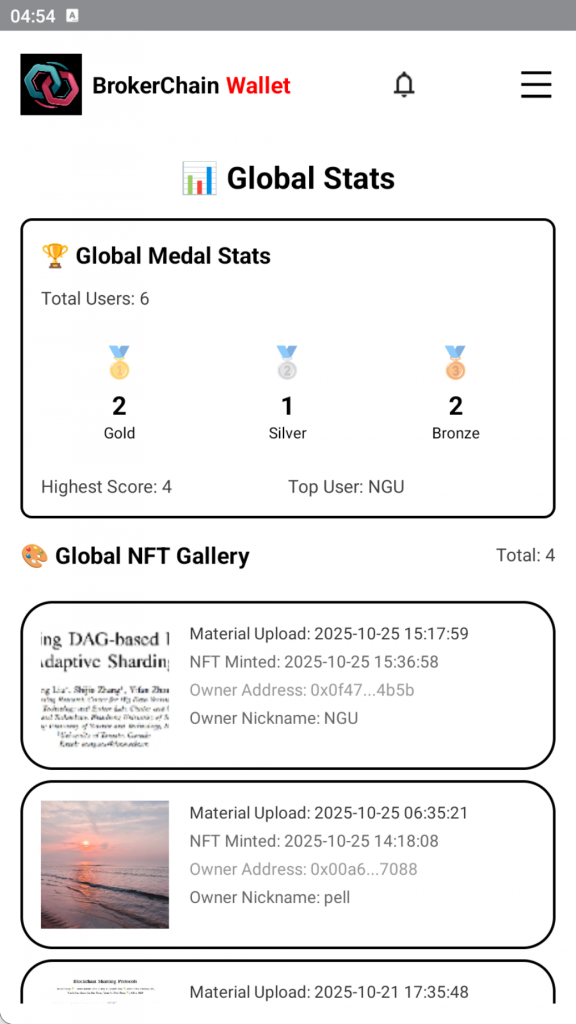
软件下载
目前用户只能通过HuangLab 发布的BrokerChain Wallet 钱包软件来使用EmulatorDAO的功能。BrokerChain Wallet 钱包的下载地址如下:
https://github.com/HuangLab-SYSU/brokerwallet-academic/releases
值得注意的是:当前BrokerChain Wallet 钱包只能运行在安卓设备上,如果您没有安卓设备,可以尝试在其他操作系统上安装一个安卓模拟器,例如MacOS 上可以安装 BlueStacks模拟器软件,然后在模拟器中安装BrokerChain Wallet钱包。
愿景
EmulatorDAO 展示了在研究组自研区块链 BrokerChain 上构建自治组织(DAO)的可能性。研究组计划将它制作成可复用的模板开源出去,给其他研究者与开发者提供一个参考。我们会提供详细的设计与实现说明文档,希望可以帮助他们开发他们自己版本的链上应用。
致谢
EmulatorDAO 的核心开发者是中山大学软件工程学院的几位大三本科生,分别是万伟杰、周意、王思华、龚虹宇,指导老师是黄华威。几位本科生也是黄华威老师研究组的本科实习生。在此,研究组对几位本科生的聪明才智与辛苦工作表示诚挚的感谢!
BlockEmulator简介 (内容由AI生成)
BlockEmulator是指中山大学软件工程学院黄华威研究组开发的区块链实验平台。它是一个开源的实验工具,专门设计用于验证新的区块链协议和机制,特别是区块链分片协议。BlockEmulator支持以太坊历史交易的回放,能自动输出实验日志文件,帮助研究人员方便地收集实验数据并绘制实验图表。这个平台以Go语言实现,支持定制化开发,适用于轻量级区块链系统的实验平台搭建。
具体来说,BlockEmulator 具有以下特点。
功能强大: BlockEmulator 能够测试区块链分片协议,填补了该领域的研究空白。
实验友好: 它提供了便捷的二次开发与实验数据收集功能,适合进行区块链激励层设计新的机制、共识层评估共识算法、协议层添加新的功能、网络层参数优化设置、数据层优化存储等研究与实验;它尤其支持分片区块链的性能评估,例如分片间的账户分配算法、交易负载均衡调节、跨分片协议开发与性能评估,等等。
广泛应用: 已经有多个国内外研究团队使用BlockEmulator作为实验工具,研究成果发表在顶级期刊和国际会议上,如IEEE/ACM ToN, TPDS, TSC, TNSE, TNSM, TDSC, TIFS, INFOCOM, ICDE, WWW, ICDCS, SRDS等。
社区支持: BlockEmulator有一个活跃的微信群用户社区,黄华威研究组成员会在社区及时回复用户的技术问题,提供帮助和解决方案。
文档详尽: 研究组发布了详细的用户指南,帮助新手更快上手,同时还有B 站视频教程和GitHub示例代码可供参考。
持续更新: BlockEmulator不断更新代码,优化参数配置,引入新功能,并通过GitHub和官网保持与用户的互动。
总之,BlockEmulator是一个功能全面、用户友好的区块链实验平台,为区块链研究者提供了一个强大的工具来测试和验证新的协议和机制。





